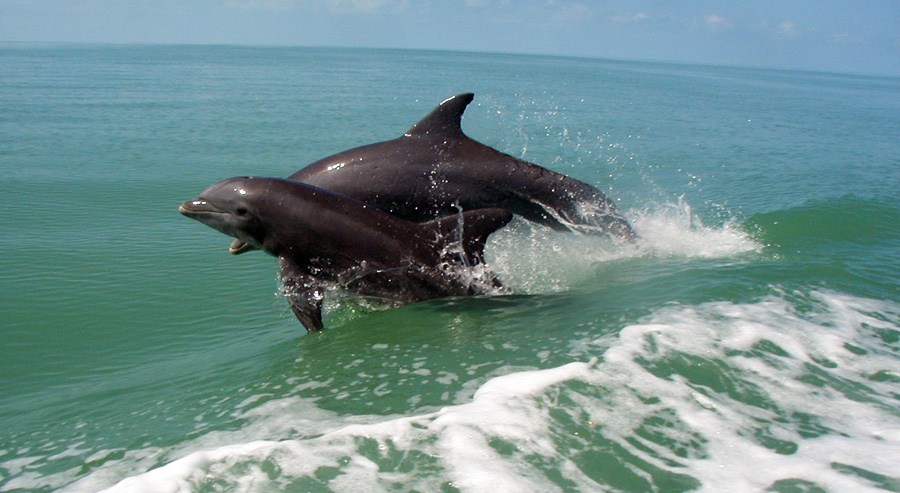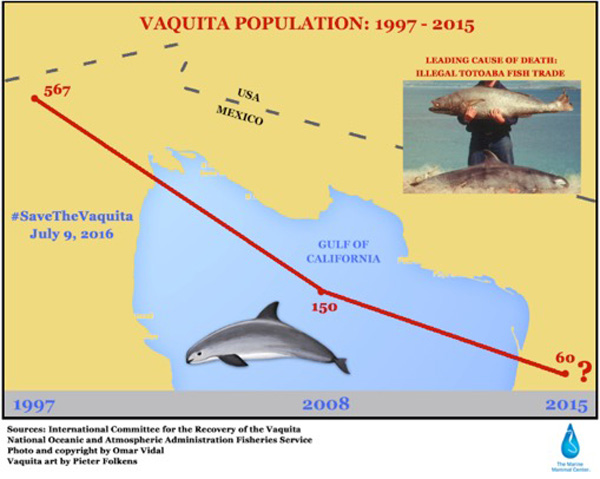On Friday, July 22, 2016, United States President Barack Obama and Mexico’s President Enrique Peña Nieto committed to intensify bilateral cooperation to protect the critically endangered vaquita porpoise. Please attribute the following statement to Dr. Frances Gulland, The Marine Mammal Center’s Senior Scientist and a member of the U.S. Marine Mammal Commission:
“The demand for illegal totoaba fish bladders is driving the vaquita’s demise. By strengthening bilateral cooperation, Mexico and the United States are pledging their commitment to save the world’s most endangered marine mammal. Enforcing a permanent ban on gillnets, developing alternative fishing gear, and increasing awareness among potential sellers and buyers of totoaba bladders will give the vaquita the greatest chance of survival.”
Background
The tiny vaquita porpoise is found only in the shallow waters of the northern Gulf of California, Mexico. It is the most endangered of the 128 marine mammals alive in the world today. The Comité Internacional para la Recuperación de la Vaquita (International Committee for the Recovery of the Vaquita), an international team of scientists established by the government of Mexico and known by its Spanish acronym CIRVA, estimated only 60 vaquitas remaining. This represents a decline of more than 92 percent since 1997.
The rapid fall of the population is a direct result of rampant illegal trade in an endangered fish species, the totoaba, which is caught in gillnets that entangle vaquitas. In March 2016, Dr. Gulland performed necropsies on three dead vaquitas that were discovered in the northern Gulf of California, determining their death as “trauma, entanglement.”
The totoaba is in high demand for its swim bladder, a gas-filled internal organ that allows the fish to ascend and descend by controlling its buoyancy. The swim bladder is highly prized as a traditional health food in China and is subject to skyrocketing demand. A single swim bladder can be sold on the black market for thousands of dollars. They are dried and smuggled out of Mexico to China, often through the United States.
For more information, visit www.marinemammalcenter.org.
Also read: China’s Trade in Totoaba Fish Bladders Sending Porpoises to Extinction


